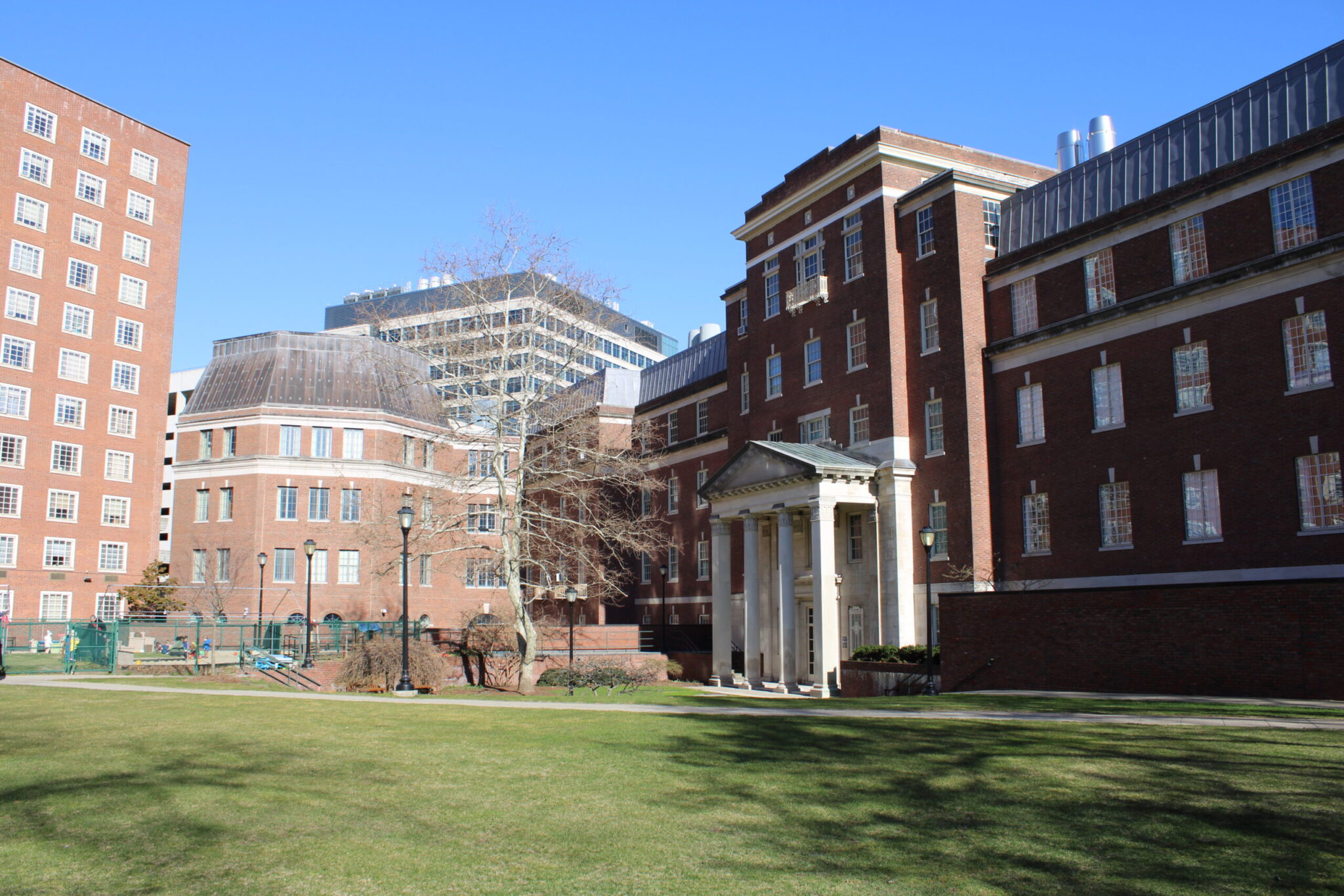The end of Yale’s online physician’s assistant program
In December, Yale announced it would be ending its online physician’s assistant program. The News spoke with several students and professors to learn about their reactions.

Alyssa Chang, Contributing Photographer
For many years, Alison Streeter MED ’25 did not think she would ever work in the medical field. After double majoring in vocal performance and general studies at Indiana University, she worked as a school counselor and primary therapist at multiple secondary schools and even helped direct an arts and events space in Virginia.
But Streeter had always been interested in becoming a physician’s assistant, or PA. During the COVID-19 pandemic, after seeing many of her friends switch jobs, she decided to apply to Yale’s Online PA program in 2022. She was accepted and will graduate from the program next year.
Though Streeter was accepted into another on-campus PA program in Atlanta, she decided to accept Yale’s offer because the program’s online format made it much more practical.
“I really liked the flexibility of the Yale PA online program, so that’s why I opted to accept that position,” Streeter told the News.
However, students will not be able to take advantage of Yale’s online program in the future. In December, the School of Medicine announced that it will be closing its PA Online Program. While there are currently 40 students in this year’s graduating class, no future students will be able to apply and the final graduating class will be in 2026. Launched in 2018 amid primary clinician shortages, Yale’s PA Online Program sought to make PA education more accessible by offering remote education that allowed students to remain in their home communities.
In a co-written email to the News, Elizabeth Roessler, Alicia Bolden and Alexandria Garino, all of whom are professors at the PA school, cited the program’s difficulties in finding clinical placements near students’ residences for the program’s discontinuation.
“Facing an increasingly challenging clinical placement landscape for health care students across the country, we found ourselves over the past few years competing with clinical training programs in other states seeking to place their own students in clinical settings,” the professors wrote.
The PA administrators said that they have struggled to secure suitable clinical placements for their students because many healthcare providers and facilities have scaled back their student-training capacities following the COVID-19 pandemic. Many healthcare systems have grappled with a shortage of preceptors due to increasing workload expectations, time constraints, potentially lower clinical productivity and self-perceived lack of qualification by providers. This, in turn, has caused an increase in competition for fewer spots.
Yale’s PA Online Program was structured similarly to its traditional campus-based PA Program. Students in both programs receive a Master of Medical Science, or MMSc, degree after 28 months of study. For the first 12 months, those in the online program receive a “didactic” curriculum, which includes online classes on the anatomy and physiology of the human body, supplemented by clinical experiences.
Then, over the following 16 months, students participate in clinical rotations at a local hospital. A clinical placement team at Yale helps coordinate PA students to hospitals that can give them hands-on experience.
“I really liked the hybrid model of the curriculum,” Emily Lin Syed MED ’25, a second-year student in the online program. “I think that this was an innovative program, and it was successful in many ways.”
Additionally, the PA professors cited concerns about having to compete for placement spots against students in other local in-person PA programs. Because Yale’s Online PA program was reluctant to assert placement demands locally, some students had to travel long distances for their clinical rotations.
Though the program hired additional clinical support staff and gradually reduced class sizes, they ultimately decided to discontinue the online program.
Nevertheless, the PA program administrators underscored the importance of continuing efforts to broaden educational accessibility.
“We are proud of our current PA Online students and the nearly 250 program graduates,” they wrote.
The Yale in-person PA Program accepted its first class in 1971.







